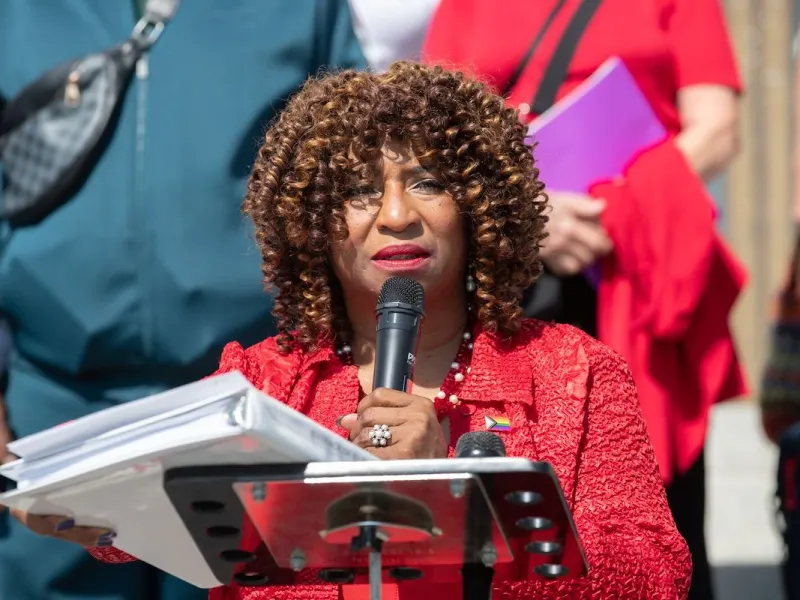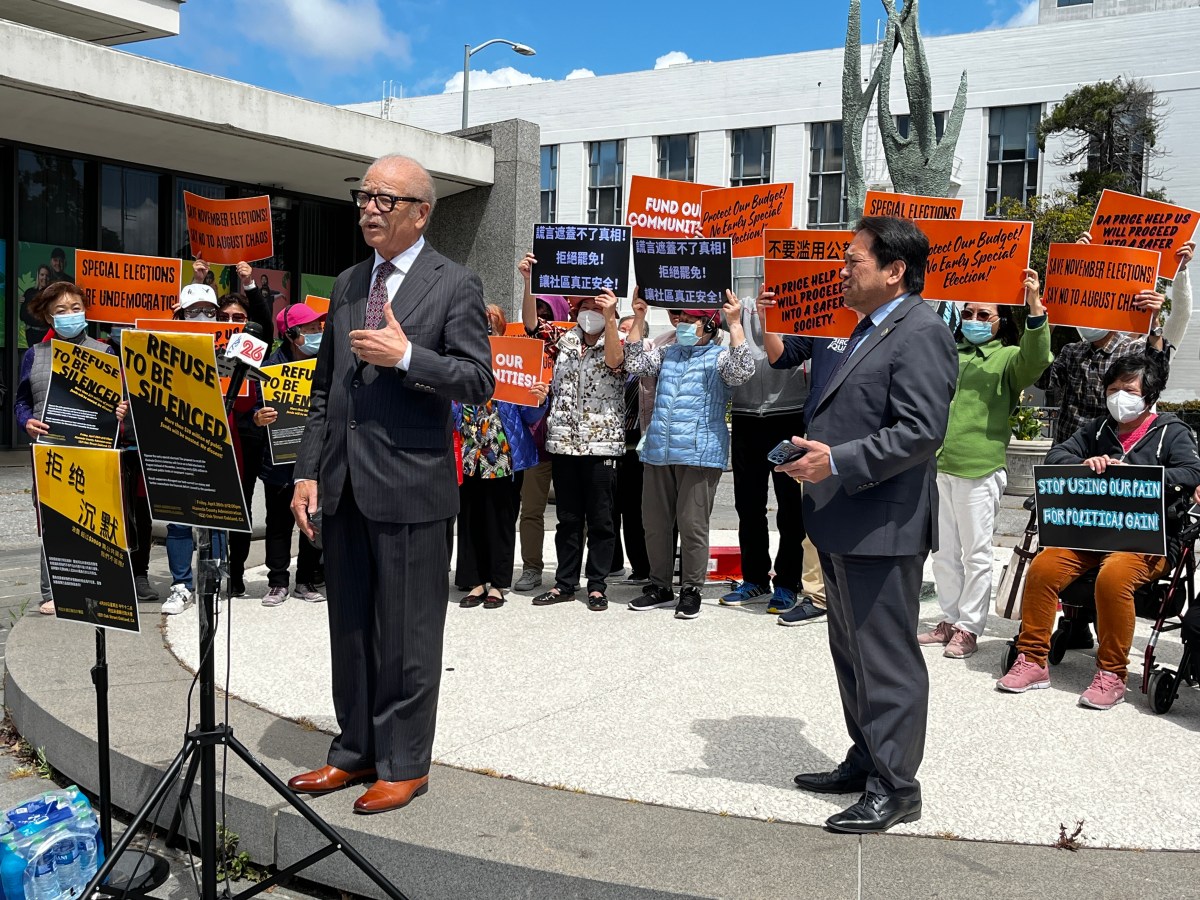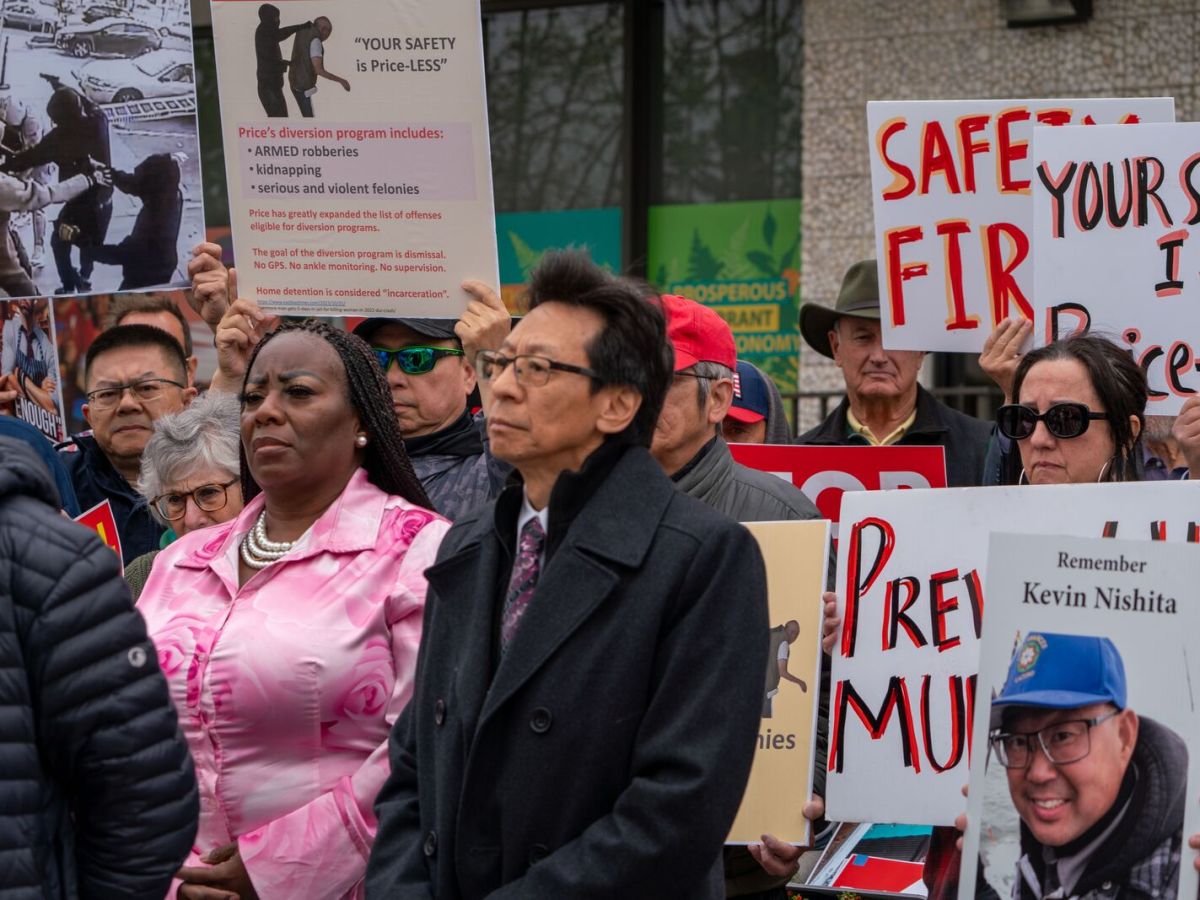Oakland voters, mark your calendars. The question of whether or not Alameda County District Attorney Pamela Price should be allowed to fill out the rest of her term will be decided on Nov. 5, 2024.
The county Board of Supervisors voted Tuesday to consolidate the recall with the general election, which will include local, state, and federal races and ballot measures. Supervisors Lena Tam and David Haubert attended part of the meeting but were excused before the vote.
Proponents of the recall wanted the county to hold a special election this summer that would solely feature the recall question. County staff have said this would cost around $15-20 million, factoring in expenses for hundreds of election workers, printing ballots and election materials, postage, and setting up vote centers. In comparison, the cost of adding the recall question to the November general election ballot will be $4 million.
Cost was a major factor in the board’s decision because the county is facing a projected $68 million deficit in its budget. The Alameda County Health System, which runs Highland Hospital and other healthcare facilities and is funded partly by the county, is also facing a $100 million deficit.
“The bottom line is that I can’t in good conscience support a special election that’s going to cost the county nearly $20 million,” said Board President Nate Miley. “I just feel as a fiduciary of the taxpayers’ funding, that would be irresponsible on my part.”
Keith Carson, whose term expires this year, said Price was elected to serve a six-year term, but faced a recall campaign just three months after her inauguration. He also pointed out that Price operates within a larger criminal justice system, which includes police, public defenders, and judges.
“To hold one individual completely responsible for all aspects of the system, respecting your belief and your feelings, that’s not the way our system operates,” said Carson.
The board’s decision followed comments from nearly 100 members of the public.
The recall’s leaders, Brenda Grisham and Carl Chan, argued that the county should have set aside money for the recall last year when the campaign started. However, it was never a certainty that the recall campaign would gather enough signatures to make it onto the ballot; the Registrar of Voters only qualified the recall for the ballot in April, after the campaign spent millions employing paid signature gatherers who fanned out for months across the county.

“A special election would be the best thing because that’s what we asked for,” Grisham said at the meeting. “All we want is justice, accountability for the citizens of Alameda County.”
Several recall supporters claimed that Price—who is philosophically opposed to harsh punishments for juvenile offenders and certain sentencing enhancements—has failed to adequately protect county residents from violent crime. They argued that spending more money to hold a special election sooner will save more lives.
“We need justice for our babies, and actually nothing is going to change if Pamela Price is still in office,” said Brenda Angulo, whose 15-year-old son Erick Portillo was murdered in Hayward last year. “I don’t understand why it’s an issue economically.”
Recall opponents, including a representative of the ACLU of Northern California, which is raising money to support Price, argued that spending up to $20 million on a special election is unacceptable when the county is already struggling to find resources to support its core services, including mental healthcare and homelessness. Others pointed out that many types of crime appear to be declining in Oakland compared to last year. And several speakers said it would be fairer to hold the recall during the general election because more voters will turn out.
“I believe a consolidation election with the general election in November promotes the greatest opportunity for democracy at this stage,” said Richard Spiegelman, an Oakland resident. “More people will come out and have the opportunity to vote.”
Some of Price’s supporters also objected to the recall itself as illegal, citing alleged problems with the signature gathering process. The California Fair Political Practices Commission announced last month that it was investigating these claims.
“I don’t understand how you can move forward with a recall that does not follow the county rules,” said Price supporter Rivka Polatnick.
Supervisor Elisa Marquez said navigating the recall process has been “extremely challenging” for the board. In March, voters approved Measure B, which got rid of the county’s recall rules and adopted the state’s. This has created confusion for many residents around whether the Board of Supervisors and Registrar of Voters should be following county or state rules for the recall.
Miley dismissed criticism of the board’s decisions concerning the recall. “We take the advice of the County Counsel, and if folks disagree with that advice, they can always sue the county.”
Related stories
Recall campaign has outraised District Attorney Pamela Price by millions
We contacted some of the major contributors and asked them why they’re seeking the DA Price’s removal.
District Attorney Pamela Price’s supporters object to special election for recall
Recall opponents are asking the Board of Supervisors to schedule an election in November, saying a special election this summer would waste $20M.
Recall organizers demand speedy special election to decide Alameda County district attorney’s future
On Tuesday, recall supporters rallied in downtown Oakland, asking the county Board of Supervisors to hold a special election this summer to let voters decide Pamela Price’s fate.




